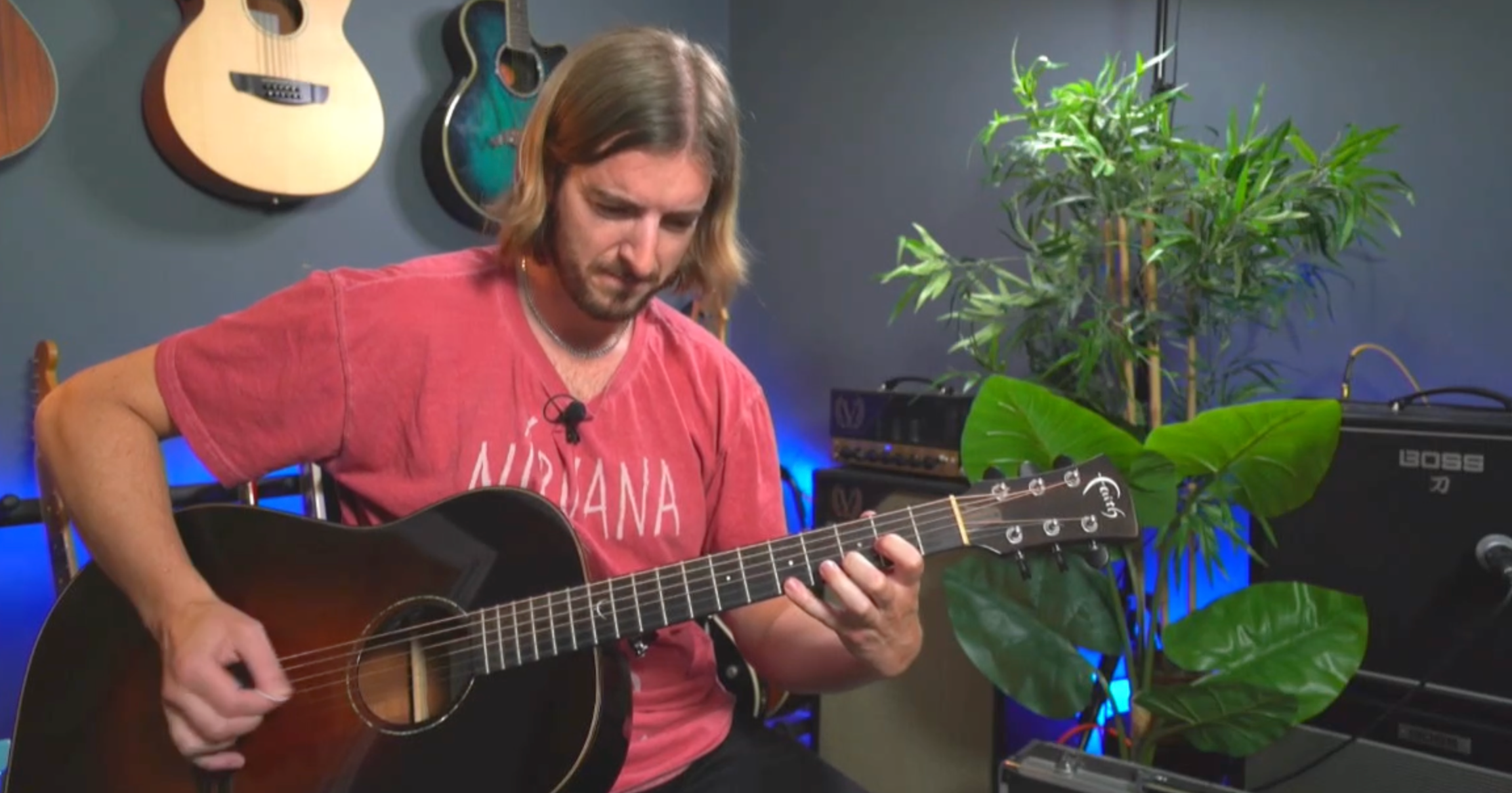In this video
Tonight's live lesson combines 2 major topics: Song repertoire, choosing songs, learning them, memorisings them; lead improvisation, how to start making it sound like real music?
Part 1 - Repertoire Building: how to learn more songs, and which songs should you learn?Repertoire Building:
Song Learning: Learning a diverse range of songs across different genres
Song memorisation:
Style Versatility: Playing in various styles like rock, blues, jazz, classical, and folk
How to practice for certain goals/ musical outlets
Building a song repertoire on guitar and memorizing new songs can be greatly improved with some structured approaches and consistent practice. Here are 10 tips to help you:
Tips for Building a Song Repertoire
Start with Simple, Repetitive Songs
Begin with songs that have simple chord progressions and rhythms. This will help you build confidence and foundational skills. Songs with three to four chords are ideal for beginners.
Learn Songs You Love
Choose songs you are passionate about. Enjoyment and personal connection to the music will motivate you to practice more frequently and with greater enthusiasm.
This makes the repetition bearable, plus gives you the “feel good” chemicals while you play!
Diversify Your Genres
Include a variety of genres in your repertoire. This broadens your musical knowledge and makes your playing more versatile and interesting.
Use a Practice Schedule
Create a practice schedule that includes time for learning new songs and revisiting old ones. Consistency is key to building a solid repertoire.
Break Songs into Sections
Learn songs in small sections rather than trying to tackle the whole piece at once. Focus on mastering one verse or chorus before moving on to the next part.
Record Your Practice
Recording your practice sessions can help you track progress, identify areas for improvement, and get accustomed to performing.
Play Along with Recordings
Play along with recordings of the songs you are learning. This helps with timing, rhythm, and understanding how your part fits into the overall song.
Join a Band or Jam with Others
Playing with other musicians can help you learn new songs faster and improve your overall musicianship. It's also a great way to get feedback and new ideas.
Use Songbooks and Tabs
Utilize songbooks, online tabs, and chord charts to expand your repertoire. Websites like Ultimate Guitar and Songsterr are valuable resources.
Set Goals and Milestones
Set specific goals for the number of songs you want to learn within a certain timeframe. Celebrate reaching these milestones to stay motivated.
Tips for Memorizing New Songs
Repetition and Consistency
Repetition is crucial for memorization. Practice regularly, focusing on playing the same song multiple times until it becomes second nature.
Understand the Song Structure
Break down the song into its structure: verses, choruses, bridges, etc. Understanding the layout helps in memorizing the flow of the song.
Visualize the Chords and Lyrics
Visualize the chords and lyrics in your mind. Mental practice can be as effective as physical practice for memorization.
Use Mnemonic Devices
Create mnemonic devices to remember chord progressions and lyrics. Associating parts of the song with visual images or stories can aid memory.
Practice Slowly
Start by playing the song slowly to ensure accuracy. Gradually increase the tempo as you become more comfortable.
Focus on Problem Areas
Identify and spend extra time on the sections of the song that you find most challenging. Isolating and repeating these parts can improve your overall performance.
Sing Along While Playing
Singing the lyrics while playing helps reinforce memory through auditory and motor learning. It also helps with timing and rhythm.
Use Flashcards
Write down chord progressions or lyrics on flashcards and test yourself regularly. This can be especially useful for learning complex songs.
Perform Regularly
Perform the songs you've learned regularly, whether in front of friends, family, or at open mics. Performance pressure helps solidify memory.
Stay Patient and Persistent
Memorizing songs takes time and patience. Stay persistent, and don't get discouraged by setbacks. Regular practice will lead to improvement.
By implementing these strategies, you'll build a robust song repertoire and improve your ability to memorize new songs, making you a more confident and versatile guitarist.
Part 2 - Getting started with lead Improvisation
Matts video https://www.youtube.com/watch?v=D-dCGv75FSM
Fuzzy - “I like that, feels kind of oasis’y. Also it looks like you have heat waves on the top of your guitar, you are literally on fire “
Alan "Hi Matt, That is a pretty laidback tune for a rocker like you. Enjoyed it.”
Here's a 6-point plan to help you learn improvisation lead guitar as a total beginner:
1. Master Basic Scales and Shapes (Pentatonic & Major/Minor)
Focus on the Pentatonic Scale: The minor pentatonic scale is often the first choice for beginners because it’s simple and sounds great over many progressions.
Start with the A or E minor pentatonic as it’s a common scale and works well with many backing tracks.
Practice this scale slowly, both ascending and descending, in different positions on the fretboard.
Once comfortable, move on to the major scale and minor scale. These will help you expand your improvisational vocabulary.
2. Understand Basic Chord Progressions
Learn the common chord progressions that most songs use, such as the 12 bar blues, I-IV-V progression or ii-V-I progression.
Practice improvising over simple chord progressions using the pentatonic or major scales.
Pay attention to the relationship between the chords and the scale notes. This will help you figure out which notes sound good over certain chords.
3. Learn Phrasing and Dynamics
Play in phrases, rather than just running up and down the scale. Break your playing into small musical sentences or ideas. PAUSE!
Use phrasing techniques like bends, slides, hammer-ons, pull-offs, and vibrato to add expression to your improvisation.
Practice creating tension and release by playing softer or louder, experimenting with timing, and adding pauses (silence can be as powerful as notes).
4. Jam Along with Backing Tracks
Start practicing improvisation by jamming to backing tracks. This helps you develop a sense of timing and musical flow.
There are plenty of free online resources with backing tracks in different keys and styles (rock, blues, jazz, etc.).
Record yourself playing over these backing tracks so you can review and analyze your progress.
5. Analyze Solos from Other Guitarists
Study simple solos from your favorite guitarists. Try to break them down to understand why they work and which scales they use.
Learn a few solos note-for-note and then start improvising over them by making small changes (add your own phrasing, change the rhythm, or substitute a note).
As you gain confidence, you'll naturally start integrating elements from your favorite solos into your own playing.
6. Develop Your Ear
Train your ear to recognize intervals, scales, and chords. The ability to play what you hear is crucial for improvisation.
Practice playing simple melodies by ear or trying to improvise along with your favorite songs. This helps to connect what you hear in your head with what you play on the guitar.
Use ear training apps or exercises to help improve this skill over time.
By following these six steps, you'll gradually build a foundation that allows you to improvise lead guitar with confidence and creativity.


Enjoying this lesson?
Have you tried a course yet? There are many courses on this website covering all levels and styles of guitar, ukulele basics and even great guest teacher courses. Browse the courses now and let them take your playing to the next level.



